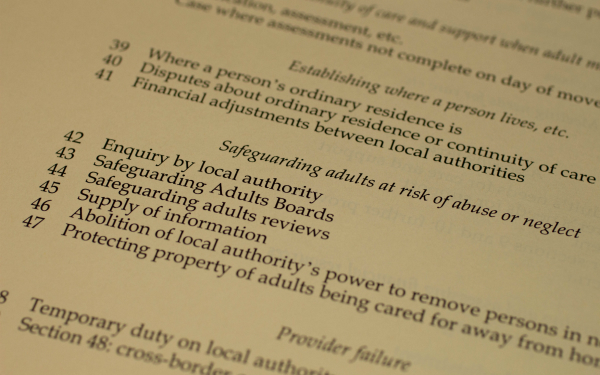
Guidance for social workers on how to protect vulnerable adults from financial abuse and scams has been issued by the Association of Directors of Adult Social Services (ADASS).
The guidance includes tips for practitioners on how to spot the signs of someone who may be responding to scams, how to talk to them and how to prevent further abuse.
Under the Care Act 2014, councils are required to protect people from financial abuse, which includes mass marketing scams and doorstep scams. These scams make people part with their money and personal details through intimidation or promising cash and prizes.
The guidance states that older and disabled people are often targeted by fraudsters and the average age of a victim is 75. The scams can cost UK consumers up to £10bn a year.
Glen Garrod, vice president of ADASS, said: “Carers, families and neighbours need to be more aware of abuse, which can see older and disabled people lose their life savings and suffer deteriorating health after falling victim to scam letters, calls or doorstep fraudsters.
“The guidance we have published in tandem with partners on financial abuse and scams aims to improve safeguarding work for those working in social care. Improved information sharing between health and social care agencies, and robust risk assessments and record keeping will also help to minimise the risk of, and identify potential signs of abuse.”
The guidance warns that scamming victims can be difficult to identify because they may be instructed to remain quiet by criminals or feel guilt, shame and are in denial.
It advises social workers to take a conversational approach, rather than asking structured questions, to try and sensitively obtain information regarding the scams.
It also provides a link to an online training session and suggests that practitioners find out what work their council’s trading standards team is doing on scamming.
The guidance also includes case studies and advice for councillors, local safeguarding boards and health and wellbeing boards. It was produced in partnership with the Local Government Association, the Adult Principal Social Worker network and National Trading standards.


 Bournemouth, Christchurch and Poole
Bournemouth, Christchurch and Poole  Hampshire County Council
Hampshire County Council  Lincolnshire County Council
Lincolnshire County Council  Norfolk County Council
Norfolk County Council  Northamptonshire Children’s Trust
Northamptonshire Children’s Trust  South Gloucestershire Council
South Gloucestershire Council  Wiltshire Council
Wiltshire Council  Wokingham Borough Council
Wokingham Borough Council  Children and young people with SEND are ‘valued and prioritised’ in Wiltshire, find inspectors
Children and young people with SEND are ‘valued and prioritised’ in Wiltshire, find inspectors  How specialist refugee teams benefit young people and social workers
How specialist refugee teams benefit young people and social workers  Podcast: returning to social work after becoming a first-time parent
Podcast: returning to social work after becoming a first-time parent  Podcast: would you work for an inadequate-rated service?
Podcast: would you work for an inadequate-rated service?  Family help: one local authority’s experience of the model
Family help: one local authority’s experience of the model  Workforce Insights – showcasing a selection of the sector’s top recruiters
Workforce Insights – showcasing a selection of the sector’s top recruiters 

 Facebook
Facebook X
X LinkedIn
LinkedIn Instagram
Instagram
Comments are closed.